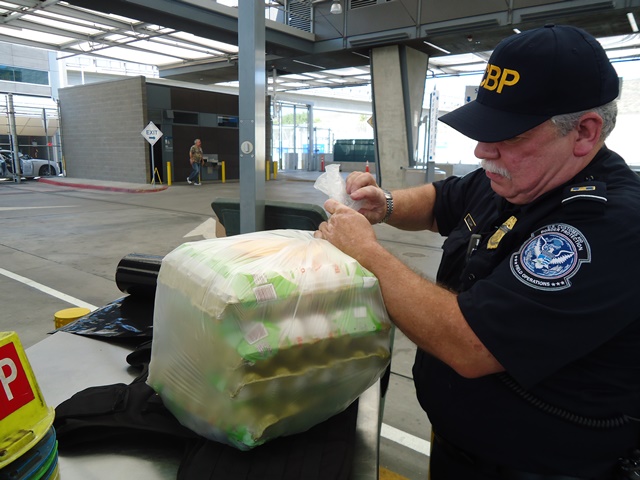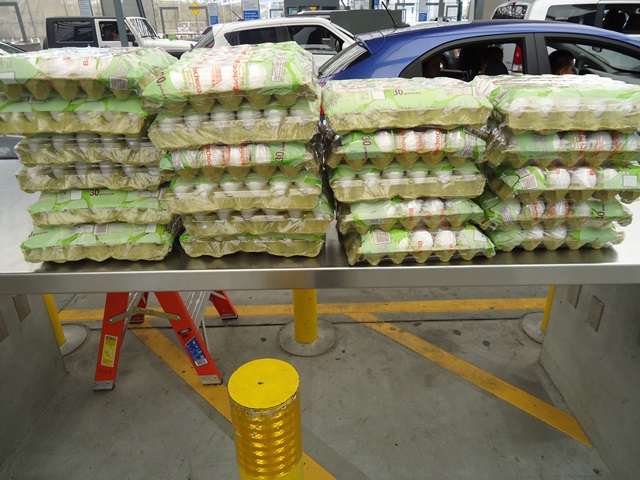|
SAN DIEGO — U.S. Customs and Border Protection officials are reminding travelers that they are prohibited from bringing fresh eggs, as well as other uncooked poultry products, from Mexico into the U.S.
All poultry that is not thoroughly cooked is prohibited through the passenger ports of entry; this includes fresh eggs as well as fresh and frozen poultry meat. Poultry meat (including the meat of ducks, turkeys, and chickens) and poultry meat products that have a thoroughly cooked appearance upon inspection are allowed from Mexico for personal use.
According to the U.S. Department of Agriculture, fresh eggs and other insufficiently cooked poultry products can harbor animal diseases such as Newcastle disease and highly pathogenic avian influenza. These deadly viral diseases, if introduced into commercial flocks, reduce the production of eggs and poultry meat and result in costly eradication efforts. According to the California Department of Food and Agriculture, the cost of controlling a Newcastle disease outbreak in California that occurred from 2002-2003 was $160 million.
“We have seen a recent rise in the number of eggs we are seizing at our border crossings in the San Diego area,” said Sidney Aki, Port Director for the San Ysidro and Otay Mesa ports of entry. “It’s important for travelers to know what they can and cannot bring into the U.S., and that they follow the regulations, which are designed to protect U.S. agriculture and the economy at large.”
In order to allow proper inspection of goods, travelers must declare all food, live animals, and plant or animal products to CBP officers at the port of entry. Failure to do so can results in fines. There is no penalty for declaring a prohibited item; travelers will be given the option to not enter the U.S. with the item, or to abandon the item at the port. Travelers who fail to declare a prohibited item could face fines or other penalties. The amount of the fine for failure to declare a prohibited item is greater for travelers who participate in Trusted Traveler programs, such as the Secure Electronic Network for Travelers' Rapid Inspection (SENTRI).
CBP has been entrusted with enforcing hundreds of laws for 40 other government agencies, including the U.S. Department of Agriculture. CBP officers are always at ports of entry and assume the responsibility of protecting America from all threats.
Click on thumbnails for full-size photo downloads.
|




